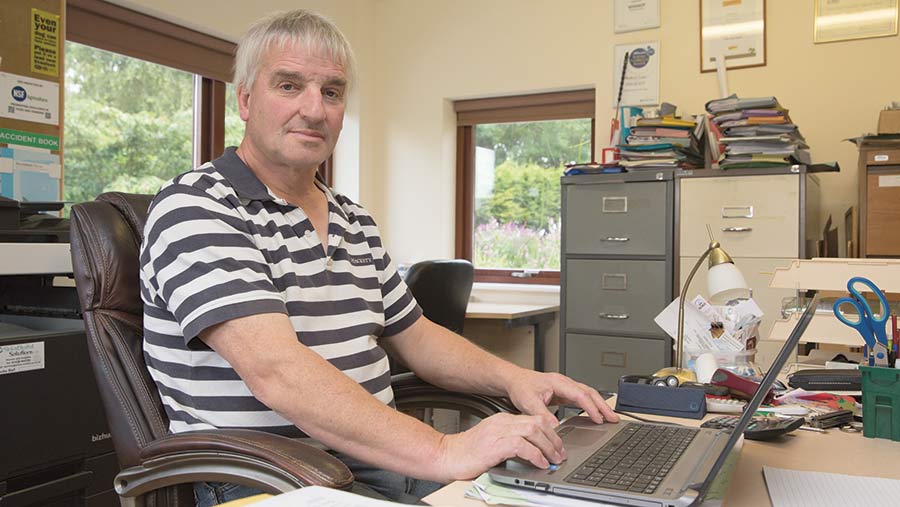Farmer Focus: Farmers must respond to Defra’s Brexit paper
 © Tim Scrivener
© Tim Scrivener The Command Paper – Health and Harmony: the future for food, farming and the environment in a Green Brexit – has been released by Defra detailing the way the future of farming might be going as we head towards Brexit and beyond.
We have got less than two months to respond to it and it is vital that as many submissions are made as possible so it is up to all growers to respond and not just to leave it to the NFU and other farming organisations to make a submission.
Several meetings have already been set up around the country in the next few weeks where growers can go and hear what it is all about and make their views known and help shape the future.
See also: What Defra’s post-Brexit plan means for farmers
The paper is available online and there are condensed and bullet pointed versions available as the original paper could hardly be described as bedtime reading.
Self-sufficiency
We keep hearing support payments are going to be targeted towards the provision of “public goods” and a large part of this will be directed towards providing environmental enhancements.
While I am a great supporter of environmental stewardship to the extent that every hectare I farm is in an environmental or woodland scheme, I still see my primary role as a food producer.
I consider that the provision of “public goods” includes producing a consistent supply of food to high standards in an sustainable manner with due attention paid to the environment.
Our food self-sufficiency in this country has slipped from the high seventies down to the low sixties quite quickly, and if the population increases as has been projected the fall will continue.
Prices received for the 2015 harvest were unsustainable with the majority of growers using some if not all of their support payments to keep their businesses afloat.
The referendum in June 2016 was and continues to be a lifeline with cereal prices rising quickly by up to £30 and support payments increasing by 22%. This price increase has brought cereals back to an area where they are at the cost of production for the average producer at present.
All thought provoking stuff and I for one could do with a bit of spring.
Robert Law farms 1,700ha on the Hertfordshire, Cambridgeshire and Essex borders growing cereals, mustard, a range of forage crops for seed, sugar beet, up to 200ha of catchcrop stubble turnips and 300ha of grass supporting a flock of 2,500 ewes. All land farmed is in environmental stewardship schemes. He also manages 500ha of sandland in Nottinghamshire.

